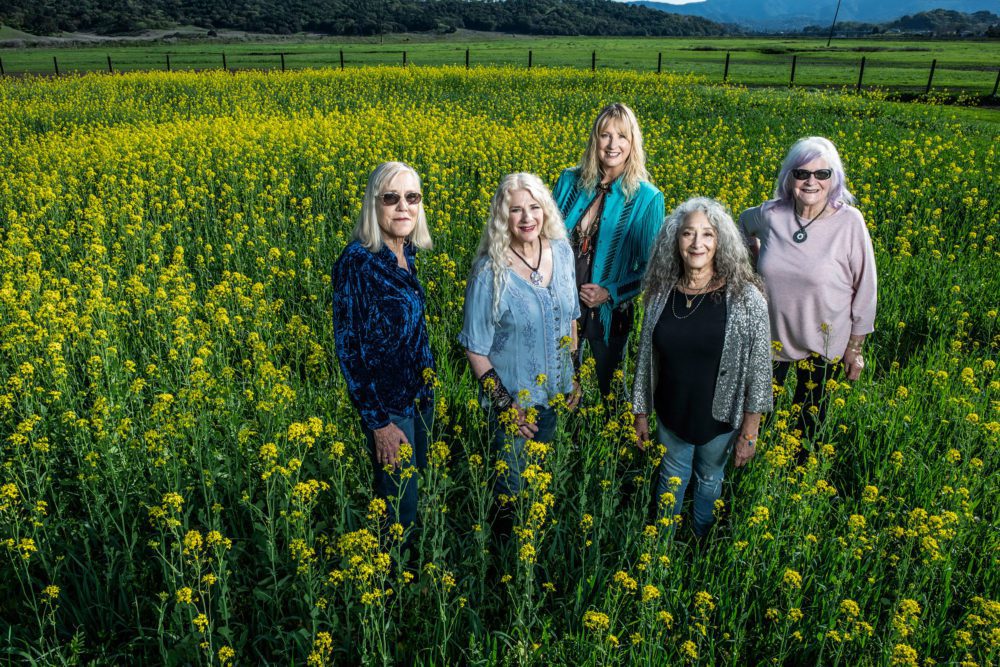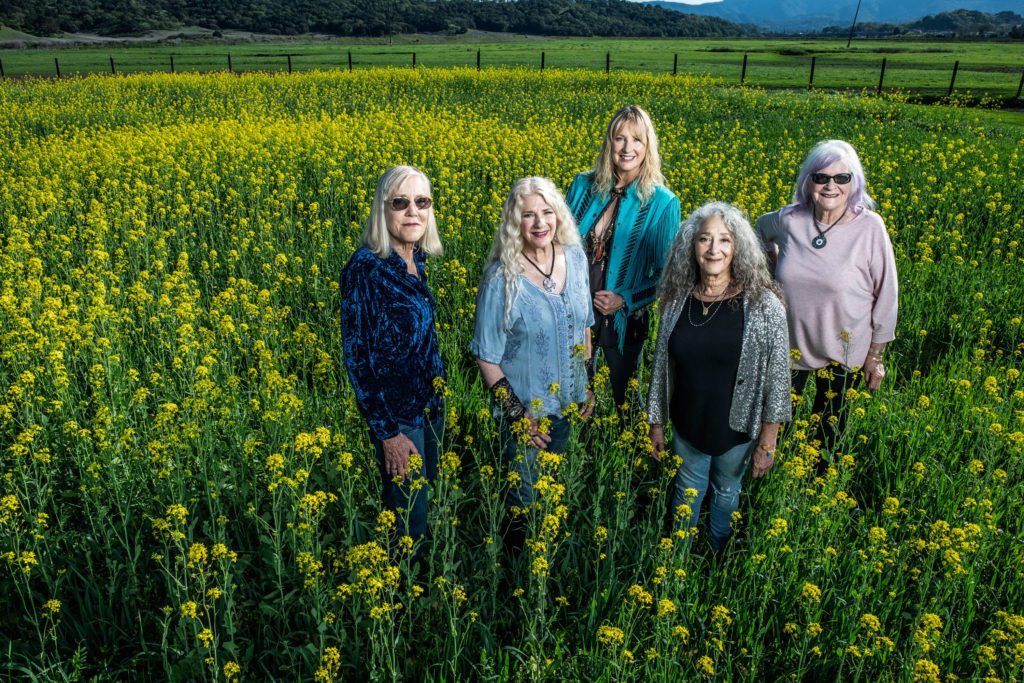

Psychedelic rock band Ace of Cups has been around since 1967. They’ve opened for the likes of Jimi Hendrix and The Band, toured with Jefferson Airplane, and collaborated with the Grateful Dead. And yet until two years ago, they had not released an album. The reason? They’re one of the first all-female rock bands in history.
“We didn’t get offered a record deal in the old days,” says Denise Kaufman, who provides vocals, guitar, and harmonica for the band. “We never had a chance to take our music to the studio and record. There were no other all-female bands recording, so I don’t think at the time the labels considered us commercial.”
Because of this, the band was known mainly for its live performances — until 2003, when British label Big Beat Records asked them for old rehearsal and performance tapes and compiled them into the album It’s Bad for You but Buy It. “That was the first time basically anybody who wasn’t [a fan] in the ’60s heard us,” Kaufman remembers. After that, their music captured the attention of George Wallace, head of High Moon Records, who approached them to record an album. They released their first previously unrecorded album, Ace of Cups, in 2018, and on September 18, they’re releasing their second, Sing Your Dreams.
Sing Your Dreams contains a mix of songs the band recently wrote and new recordings of old ones, including one Kaufman wrote back when she was 18, “Boy, What’ll You Do Then.” In a song ahead of its time, over energetic harmonica, she sings about refusing to be monogamous with a partner: “I like to run around, have my fun/Don’t try and tell me you’re the only one/’cause if I leave you boy, what’ll you do then.”
Even with band members sharing writing duties across different songs, much of the album centers on themes of women’s empowerment. Their latest single, a cover of blues musician Keb Mo’s “Put a Woman in Charge,” was released on the 100th anniversary of the 19th Amendment alongside a lyric video celebrating women’s suffrage. The lyrics, sung passionately by the group’s newest member Dallis Craft over heavy guitar riffs, make a plea for listening to women: “The time has come/We got to turn this world around/Call the mothers, call the daughters/We need the sisters of mercy now.”
The album’s lead single “Jai Ma” is completely different genre-wise, giving off tropical, spiritual vibes with joyful Latin hand drums, electric bass, and Afropop guitar. Inspired by kirtan, a chanting style of Vedic origin, Kaufman sings in defense of Eve and other traditionally demonized feminine archetypes, giving the listener permission to “come closer to your heart’s delight.”
“In different traditions — Buddhism, Hindu, certainly Christian traditions — there are threads of it that are demeaning to women, to the feminine,” she says. “So that song was to reclaim intimacy and sensuality and juice.”
Some of the music paints a picture of a specific time and place. “Waller Street Blues,” for instance, was the first song the band ever wrote together, inspired by a San Francisco street two of the members resided on. In a call-and-response style, they sing in harmonies about being left without water and electricity, unable to pay rent, “paranoid and very stoned.”
Other songs on the album are more universal. On “Sister Ruth,” they call for greater compassion throughout the world, and in “Made for Love,” they reflect on “the essential threads that connect all beings,” as Kaufman puts it. Overall, she says, the goal of the album is “reminding ourselves and others we were made for love.” It’s a mission clearly inspired by the hippie era, but it’s more relevant than ever today.
Kaufman, who currently resides on Kauai, often gets asked how the music industry has changed since she got started. She usually answers that she doesn’t know because she wasn’t really a part of it — but that’s quickly changing. Despite getting off to a late start releasing albums, Ace of Cups is on track to be prolific in this regard, with another album on the way next year. “We have a lot of material; we have a lot to write and a lot to play, so I guess you could say we’re making up for lost time,” says Kaufman.
“Just by who we are, we stand for women not being sidelined at any age in life,” she adds. “Nobody makes Eric Clapton retire and Mick Jagger retire the way we want to make women crawl under a rock and disappear, not just in music but in so many fields — business or theater or film. So, we are taking a stand for people doing what they love throughout the course of their lifetime, as long as they can. The songs we sing are hopefully borne of a wisdom you can gain living a lifetime, and those voices need to be heard in our culture.”
Follow Ace of Cups on Facebook for ongoing updates.

